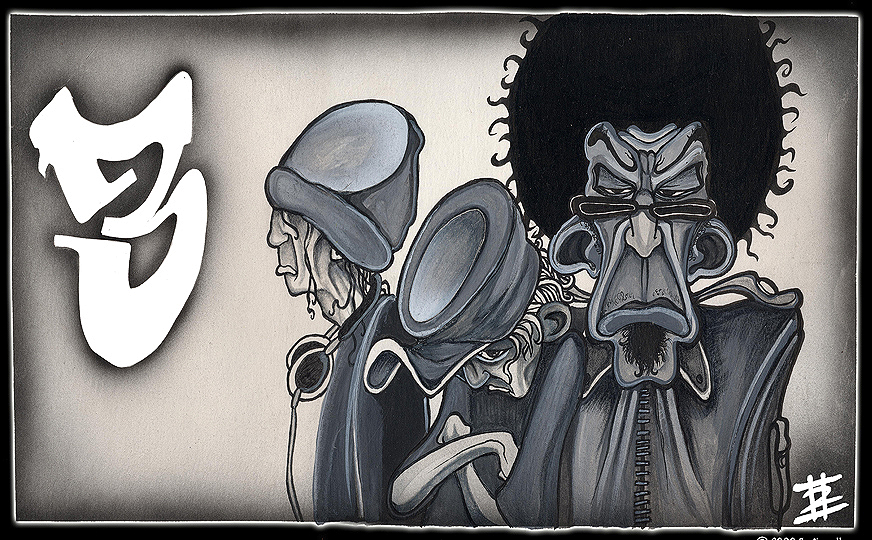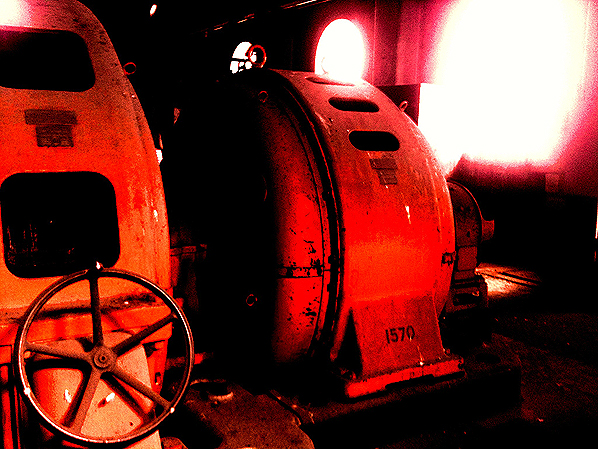classid="clsid:38481807-CA0E-42D2-BF39-B33AF135CC4D" id=ieooui>
 Kevin Boyle
Kevin Boyle
Kevin Boyle grew up in Philadelphia and now lives in Burlington, North Carolina. His book of poems, A HOME FOR WAYWARD GIRLS, won the New Issues Poetry Prize in 2004, and his chapbook, THE LULLABY OF HISTORY, won the Mary Belle Campbell Poetry Book Publication Award in 2002. His poems have appeared in Greensboro Review, Virginia Quarterly, Michigan Quarterly, Poetry East, Denver Quarterly, North American Review, Colorado Review and Antioch Review.
Approaching Sixty
The plaza in sun-stroke, the men tied to palms
Whose branches they lop, he walks through
The dream to her steps and finds her still
In mourning, saying, come back in a year’s time,
My love, then invites him in, touching
His face to find out who he is, a recurring touch
For thirty years, and then gone, not the memory
Exactly, just the dream. A blessing not to wake
Without her, the black lace, the red in her hair
In her lips as well, the welcoming smile saying
Tengo las cosas muy claras, because everything
Makes sense to her now. And a blessing
Not to be turned away and find himself lost
In the two-block red light district where dwarves
And the deformed make small talk with
The sex buskers, the women raising their skirts
To show him their black mantillas they lift
To show him their hair, black and pomaded.
The two scenes arm in arm for years until
Finally he realizes he hasn’t dreamt of her,
Of all of them in years. Even in his dreams
He’s forgetting, leaving the exotic traces behind.
In the Deep Heart’s Core
Timmy was too kind to say no, despite the flooding
That winter, as always, the shite the road threw up
Even before it gave up on being a road, the students
Waking from their sleep to yawn and bitch about
The poor conditions of the mud lane, the brambles
And gorse scratching up and into the sides of
Timmy’s coach, even at the windows to frighten
The bejesus out of one slow, deeply hungover waker
As I took the mic to announce we were about to alight
For a view and snap of Yeats’s Inishfree, perhaps even
A class photo, with Inishfree in the distance, our heads
Surrounded by Lough Gill, our feet planted in muck
We’d bring back to Timmy’s coach, if Timmy
Would be so kind. We saw the island, “kind of puny,”
One student said, and another, “It’s a little fucking nothing,”
And then turned to arrange ourselves for Timmy
Who was still working the coach back and forth
To escape the trap that was the carpark, finally
Emerging in a lather, and though I thought to hand him
My camera for the group shot, all twenty-eight students
Handed him their cameras with quick directions,
And so with a few cameras on the ground, and the rest
Like bangles up and down his sweaty arms, he took
What felt like a thousand wedding photos, all of us
In fine mettle, the students and I smiling immeasurably,
As if at peace, the water birds flying away from us
Out of the rushes, the little bits of trash we dropped
Floating in the wind that put color in our cheeks, forced
The lake water to lap near our feet and take the one
Styrofoam cup someone had accidentally let slip
Out toward the mysteries of heather island.
I sometimes drag the photo out of my iPhoto folder
And realize I can’t remember a single student’s name
Because it was over a dozen years ago and Timmy,
I learned, is long dead, and though I seem to forget
Almost everything, I do remember his prescient words
As we left the lake. Never again, I’ll never again
Take you eejits down that fucking Yeats lane.
University Dreams
When I tell my daughter I only spent one Friday night
on campus when I was in college, she seems so saddened
by my loss I love her even more. At sixteen, she hates
school and is eager to go to college where she imagines
every Friday night will be filled with ecstasy, not the drug,
just the feeling, and Saturday night as well, perhaps Sunday.
She doesn’t mention Monday through Thursday much.
When I tell her I lived at home and took the bus and el
that left me off six blocks from my first class on Astronomy
taught by a man whose accent was from another galaxy,
she asks about Friday nights, Saturday, and I tell her everything
about the supermarket, how there were cash registers
to punch and no scanners, and they hadn’t invented the blood absorber
so all the meats bled as if freshly slaughtered, and how
once, during the five years, the Retail Clerks International
went out on strike, which meant I could be on campus
on a Friday night, even Saturday morning, before I had to return
to picket. And did you make up for lost time, she asked?
It was so long ago I can’t remember everything, except
that feeling of being alone and walking alone along fraternity row,
all the parties in full bloom, each house surrounded by a moat
of people, smoking and drinking, and then meeting, somehow,
a girl from Astronomy coming back from the library, Jewish,
both parents doctors, from Westchester. I told her my mother
was from the Bronx and, somehow, she invited me in
for a drink, and then—such a dark horse—to stay the night.
At that time I believed in half-hearted class war, and so felt
oppositional, and I was terrified of her, her openness,
her license, her black hair. And by Tuesday we had won
concessions, the strike was over, and I was back standing up
in my apron, blood here and there, kind of comforted
by the inhibitions, the tamping down, knowing that soon
would come the ecstasy, and I wasn’t far from wrong.
Why Sleepless
My mother told me not to fall asleep without
saying a decade of the rosary, and her mother
told her not to sleep with flowers in the room,
and a Russian caregiver told my parents to sleep with
the window open an inch or so in winter, and my brother
told me to sleep on my side of the bed or else
the wrath of Cain would come down upon me,
and my dog sleeps in a locked crate, and my mother-in-law
mentions the heat, how she can not sleep with
too much or too little heat since her husband died,
and my wife, when she sleeps, talks in her sleep
about the men who are pursuing her with knives
or with flowers, she’s never sure which, or she’s lost
her leather purse and men she has slept with
find it, dump everything in the grass, and fling
the purse deep within the long woods she can’t even see
for all the brush fires held against her eyes.
Seems to Teach
It is only during the eclipse that the moon takes
A lover, finding some other floating stone to hold
Close to her, some with dimples, some with the pox,
And as the world below her watches the magician’s cape
Cloud her over, the moon is at her antics, making love
Without arms or legs, all brain becoming quickly
All womb or all heart, she tells them. They’re at it
For an hour or so, having to part only as the sun begins
To light up their edges, the moon waxing poetic
About her moodiness and need again for privacy, solitude.
The rock begins its drift and the moon remains inviolate,
The virgin goddess beloved by all the lonely on the faces
Of the earth. She knows she is watched, and in the way
Parents teach children how to die, when the time comes,
She seems to teach the single, the solitary how to endure
With panache, with subtle shifts, the bright white loneliness.
 Richard Santiago II
Richard Santiago II  classid="clsid:38481807-CA0E-42D2-BF39-B33AF135CC4D" id=ieooui>
classid="clsid:38481807-CA0E-42D2-BF39-B33AF135CC4D" id=ieooui>




